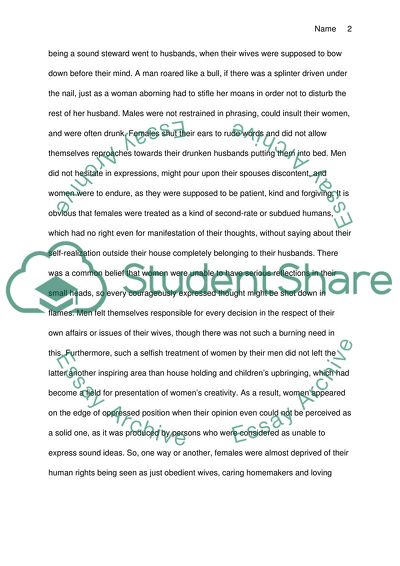Cite this document
(Susan Glaspells Play Trifles as a Manifestation of Womens Oppressed Essay, n.d.)
Susan Glaspells Play Trifles as a Manifestation of Womens Oppressed Essay. Retrieved from https://studentshare.org/performing-arts/1878570-trifles-by-susan-glaspell
Susan Glaspells Play Trifles as a Manifestation of Womens Oppressed Essay. Retrieved from https://studentshare.org/performing-arts/1878570-trifles-by-susan-glaspell
(Susan Glaspells Play Trifles As a Manifestation of Womens Oppressed Essay)
Susan Glaspells Play Trifles As a Manifestation of Womens Oppressed Essay. https://studentshare.org/performing-arts/1878570-trifles-by-susan-glaspell.
Susan Glaspells Play Trifles As a Manifestation of Womens Oppressed Essay. https://studentshare.org/performing-arts/1878570-trifles-by-susan-glaspell.
“Susan Glaspells Play Trifles As a Manifestation of Womens Oppressed Essay”. https://studentshare.org/performing-arts/1878570-trifles-by-susan-glaspell.


